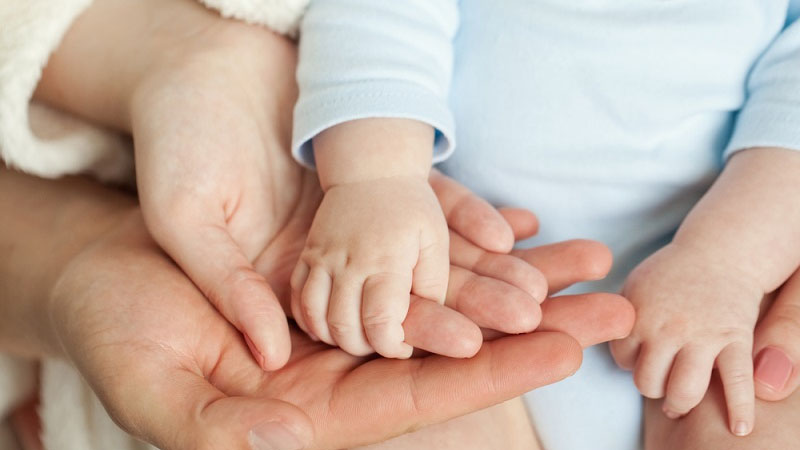In a contemporary society with all the hustle and bustle of life, age-related infertility is becoming more common because, for a variety of reasons, many women wait until their 30s to begin their families. Even though with increased life expectancy today, women's natural fertility is declining and also getting over early. Due to the normal age-related decrease in the number of eggs, we have to remember that as a woman ages her fertility naturally. In current times, this decline is taking place much sooner than expected.
Now the reproductive life of women begins around age 12 or so with the first period and lasts until the last menstrual period, some four decades later (that’s menopause). As egg count and quality decline, then women don’t remain fertile for the entirety of this period.
It isn't like the fertility drops completely at age 35 it happens as a gradual process throughout the whole adult life. The Fertility decline is a snowball effect—meaning as we age, not only does our fertility decline but the rate at which it declines also increases. The downward slope of fertility gets steeper in the mid-30s.
The risk of pregnancy complications also increases with age. The risk of miscarriage and chromosomal abnormalities in the fetus increases significantly from age 35. Complications such as gestational diabetes, placenta previa (when the placenta covers all or part of the cervix, which increases the risk that the placenta will detach), cesarean section, and stillbirth are also more common among older than younger women.
The risk of miscarriage occurs in around:
- 1 in 10 pregnancies in women younger than 30
- 2 in 10 of pregnancies in women between 35 to 39
- 1 in 5 of pregnancies in women older than 45.
Women can protect their fertility from the natural aging process by maintaining a healthy lifestyle. It is important to not smoke, to moderate alcohol and caffeine intake, to perform regular exercise, and maintain a healthy weight range. However, due to the aging process, there is only so much that can be done, and the most important factor is to have a baby at an early stage.
Here are some alternatives or treatments where women might achieve pregnancy even if they are suffering from infertility as a result of their age:
- ASSISTED REPRODUCTIVE TECHNOLOGY: The good news is that with advances in reproductive technology, including in vitro fertilization (IVF) and other forms of assisted conception, women can improve their chances of conceiving. With unexplained infertility, or when traditional treatments have failed, advanced infertility therapies such as super-ovulation with timed intrauterine insemination (SO/IUI) or in vitro fertilization (IVF) may be suggested. Though IVF is more effective, it also has relatively low success rates in women of 40 years and older, generally less than 20% per cycle.
- EGG DONATION: Donor-egg IVF offers a woman an opportunity to experience pregnancy, birth, and motherhood. For a woman over 40, when using donor eggs, chances of a successful pregnancy are much higher. Still, many couples or single women in their early 40s will choose to accept the lower chance of becoming pregnant by using their eggs. At age 43, the chance of becoming pregnant through IVF is less than 5% and by age 45 the use of donor eggs is the only reasonable alternative.
- CRYOPRESERVATION: Women who wish to delay childbearing until their late 30s or early 40s may consider methods of fertility preservation such as freezing of embryos after IVF or retrieving and freezing eggs for later use. Embryo freezing has been well established and still growing, so it is one of the best options for women. For this, the woman does require a male partner or a donor sperm. Egg freezing for the preservation of fertility is a new technology that shows promise for success.
Conclusion: Women are born with all the eggs they’ll ever have almost one million of them. The number of eggs gradually drops over time. At age 37, it’s estimated that they'll have around 25,000 eggs only. Generally, fertility begins to drop in the late 20s or the early 30s and falls more rapidly after the age of 35. Women who delay pregnancy till or following age 35 should collect information on suitable testing and treatment while remaining realistic about the chances for success with infertility therapy. Ultimately, the perfect time to get pregnant is when it feels right to the couple. It’s not unreasonable to wait until they feel more confident in their career(s) and finances to start building the family. If they choose to wait, they should check in with their doctor or a fertility specialist to make sure that no health issues will stand in their way when they feel they are ready.



 IVF Centers
IVF Centers IVF Doctors
IVF Doctors Joint Replacement
Joint Replacement Spine Surgeries
Spine Surgeries Dental
Dental Slimming/Weight Loss Clinics
Slimming/Weight Loss Clinics Hair Transplant Clinics
Hair Transplant Clinics Physiotherapy clinics
Physiotherapy clinics
 Search
Search





